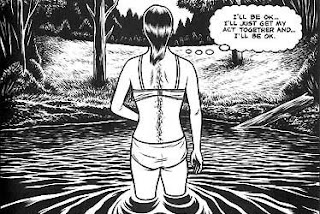Melded
With their usual flair for tapping into the current conversation, SF Signal have dedicated their Mind Meld feature to the question of gender imbalance in genre publishing. I've participated, alongside a wide selection of authors, publishers, reviewers and readers. Many of the responses are rightheaded, a few are objectionable (such as Kristin Kathryn Rusch's, whose claim that in the early 1980s "if you looked overall, you'd see that the numbers belied the argument that women were discriminated against" I will take at face value, not having any numbers at hand to refute it, but whose insistence that nowadays the inequality is similarly nonexistent seems to be rooted in willful ignorance), and most are interesting.

